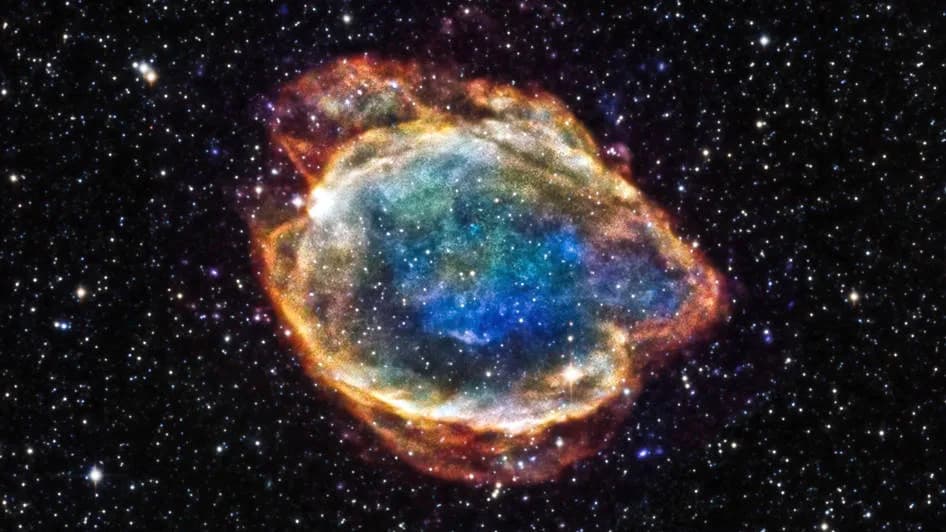A controversial new paper led by Young-Wook Lee argues that accounting for the ages of type Ia supernova progenitors removes the apparent signal of accelerating cosmic expansion. Drawing on a model built from 300 galaxies, the authors say the universe may have been decelerating for about 1.5 billion years. Prominent scientists urge caution, and upcoming data from the Vera C. Rubin Observatory — expected to find >b>20,000 new supernova hosts — should provide a decisive test.
New Study Claims the Universe’s Expansion Is Slowing — Dark Energy Questioned

New Paper Argues Cosmic Acceleration May Be an Illusion
For decades, measurements of distant type Ia supernovae — exploding white dwarfs used as "standard candles" — led astronomers to conclude that the universe's expansion is accelerating. That conclusion underpins modern cosmology and the notion of a mysterious repulsive component called dark energy.
In a controversial new paper published in Monthly Notices of the Royal Astronomical Society, a team led by Yonsei University astronomer Young-Wook Lee challenges that interpretation. They argue that when the ages of the progenitor stars are accounted for, the apparent faintness of some distant supernovae can be explained by stellar-physics effects rather than by extra distance. Using a model based on a sample of 300 galaxies, the authors report that the signature of acceleration disappears and that cosmic expansion may have begun decelerating about 1.5 billion years ago.
Lee and colleagues even suggest that, depending on how dark energy evolves with time, the expansion could eventually reverse — a scenario often referred to as a "big crunch." If borne out, their conclusions would prompt a major reassessment of the role and properties of dark energy.
"Our study shows that the universe has already entered a phase of decelerated expansion at the present epoch and that dark energy evolves with time much more rapidly than previously thought," Lee said in a statement.
The claim is provocative and has drawn immediate scrutiny. Adam Riess of the Space Telescope Science Institute — a Nobel laureate recognized for work that helped establish cosmic acceleration — cautioned that estimating the ages of supernova progenitors is difficult because many aspects of their formation and evolution remain uncertain. "The theory behind this is weak because of a lack of certainty about how the [star] forms," he told New Scientist.
University of Durham cosmologist Carlos Frenk, who was not involved in the research, described the paper as "very provocative" and "definitely interesting," while warning it may be wrong. "It's not something that you can dismiss," he said, calling the conclusions "tantalising."
Researchers expect forthcoming surveys to provide a stronger test. The Vera C. Rubin Observatory in Chile will discover and monitor many thousands of supernovae: the paper cites the prospect of more than 20,000 new supernova host galaxies within about five years. Co-lead author Chul Chung of Yonsei University said precise age measurements enabled by these data will allow a far more robust evaluation of whether stellar-age effects bias current cosmological inferences.
At present, the new analysis represents an intriguing challenge to the standard picture but is not yet a replacement for it. Independent verification with larger samples, improved progenitor-age estimates, and complementary cosmological probes (such as the cosmic microwave background and baryon acoustic oscillations) will be essential before the community revises the current dark-energy paradigm.
Why this matters
If the result is confirmed, the implications would be profound: it would change our understanding of the dominant component driving cosmic expansion and alter predictions for the universe's ultimate fate. For now, the claim remains a bold hypothesis that invites follow-up observations and debate.
Help us improve.




























